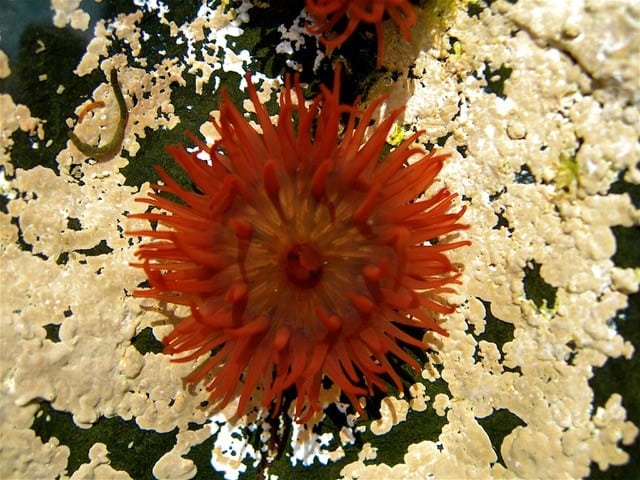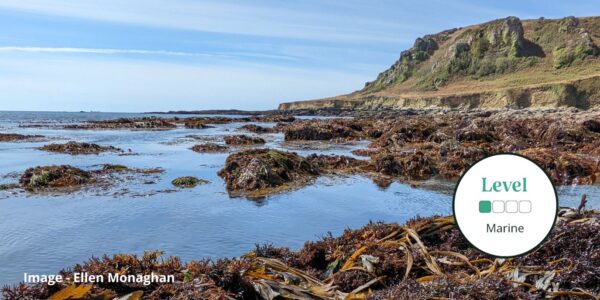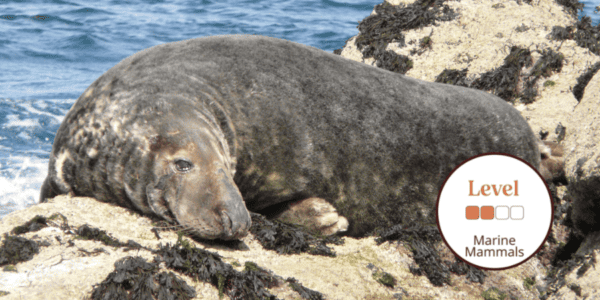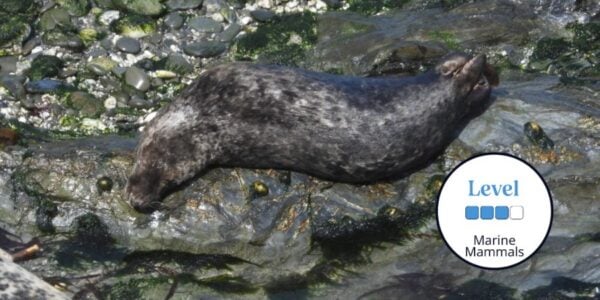This beginner marine invertebrate course will explore marine invertebrate biology, ecology, and key identification features. By the end of the course, you will be able to classify the ten major phyla of marine invertebrates and describe common species.
What is covered in this course?
- Classification of Marine Invertebrates
- Key Features of the Major Phyla
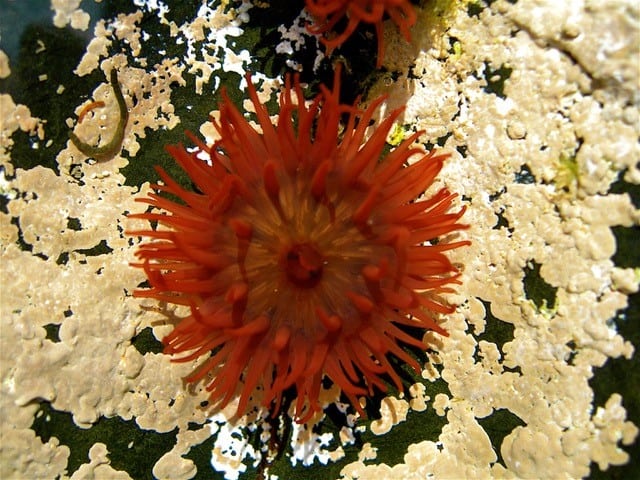
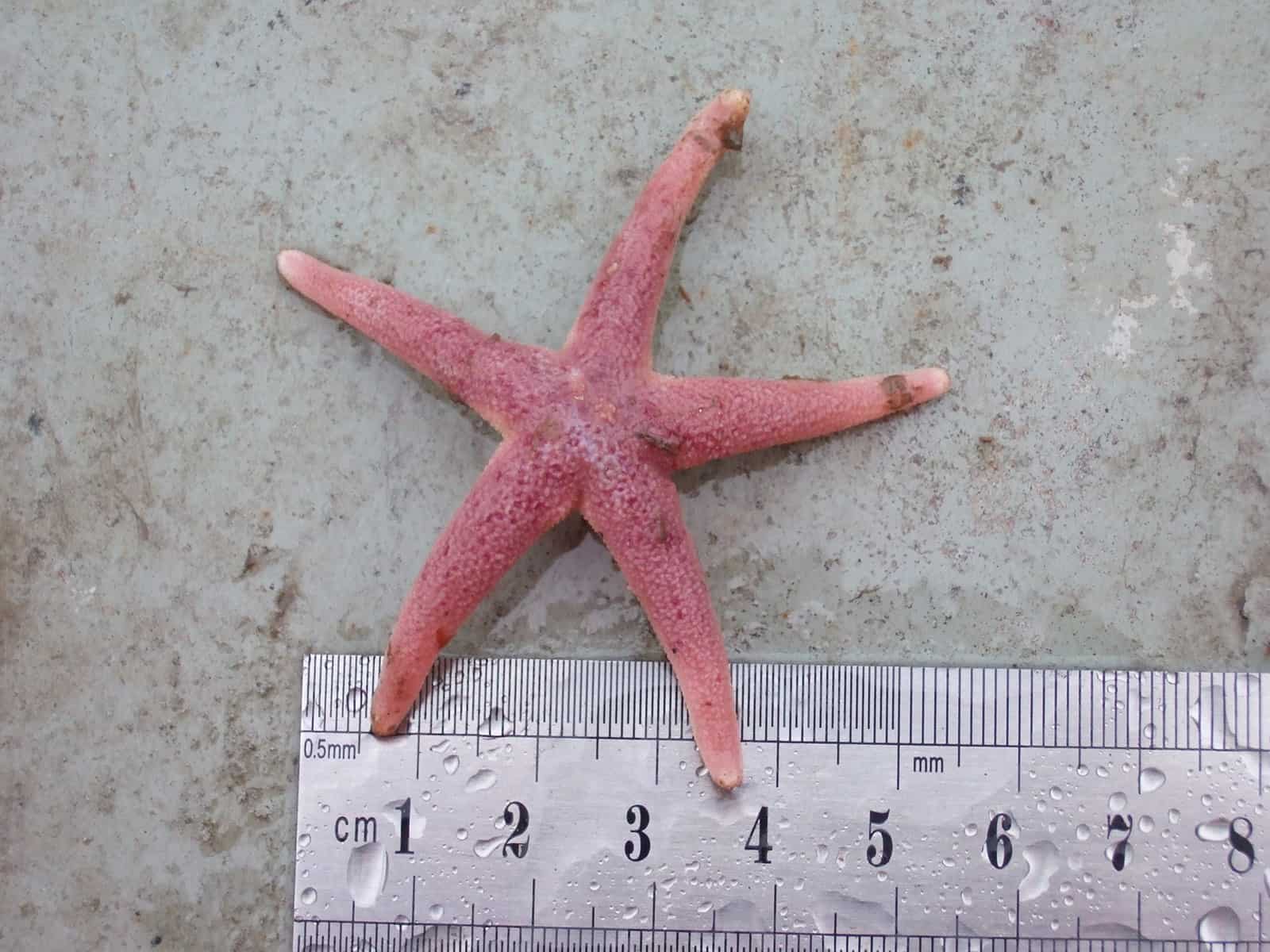

Read More
Using a taxonomic approach, learn how marine invertebrates are grouped and their key features. This will allow you to understand more about marine habitats and their invertebrates anywhere in the world.
This is the perfect course for beginners looking to learn more about marine invertebrates. This course will focus on the ten major phyla of invertebrates that you will find in marine environments including rocky shores, sandy shores, mudflats and estuaries, and will explore their biology, ecology and how they are grouped. This will include segmented worms, molluscs, chordates and more. The course will also introduce you to some common and weird and wonderful invertebrates that you might find in marine environments.
This is a 2-week online course covering 2 topics, for which you will complete a variety of self-led online resources and activities. Each topic is then concluded with an interactive Zoom workshop to complement the online content. Time commitment is approximately 2-3 hours a week and an E-certificate is provided upon completion.
By the end of the course, you will be able to:
- Define what a marine invertebrate is and their importance
- Describe the key habitats and terminology used to describe marine invertebrates
- Understand the major ranks of biological classification in the context of the marine environment
- Explain the key features, biology and developmental stages of a selection of marine invertebrate phyla
- Share this knowledge with friends, family and fellow volunteers
Who Should Attend? – Nature enthusiasts, Students, Rangers, Early career ecologists, Marine explorers
Knowledge Level – Beginner. Level descriptors can be found on the following webpage: Framework and Course Level Descriptors
Prior Knowledge – A basic understanding of marine habitats is recommended for this course.
Please note that bookings will close 2 days before the start date to allow for all participants to be enrolled to the online platform – bookings will not be taken after this time. Bookings will close sooner if course capacity is reached
Live Webinar Information
There are 2 webinars for this course, taking place at the end of each week. Please see the listing for the day and time.
Please note – webinars will be recorded and uploaded to the virtual learning platform for learners unable to attend.
About the Tutor
Ian Powell
Ian Powell is a former ecology tutor with the Field Studies Council at Slapton Ley and on overseas courses to South America. He now teaches undergraduate and masters courses in conservation biology at Edge Hill University and carries out botanical and butterfly surveys and research in the Yorkshire Dales National Park
Example Timetable
Week 1: Classification of Marine Invertebrates
Self-study material available from the course start date
Week 1 live webinar
Week 2: Key Features of the Major Phyla
Self-study material available after week 1 webinar
Week 2 live webinar
The final deadline to complete any outstanding assignments and self-study components is 2 weeks after the final webinar
Time commitment: This course will require approximately 2-3 hours of your time each week. This includes covering course materials on our Moodle learning platform and the Zoom session.
What's Included
The course has been carefully created to help you continue to build and develop your knowledge as the course progresses. With content crafted to the online Moodle Platform and bespoke to the Field Studies Council.
The course includes:
- 45-minute interactive weekly Zoom workshops to connect with the tutor and other participants
- Expert tuition for which the Field Studies Council is renowned
- Activities to work on independently in advance of each Zoom workshop
- Tailored course completion certificate
Once registered, you will follow well-illustrated, user-friendly ’books’ to pick up knowledge. Quizzes and skill checks will give you instant feedback on your learning. Forums give students the chance to interact with each other as well as a place to share work.
Reviews
-
★★★★★
I have a massive interest in marine invertebrates, but am having to learn from books, websites etc as I am in land-locked Cambridgeshire. The fact that there is an online course on this subject is just marvellous….
-
☆☆☆☆☆
Overall, I really enjoyed this course.
Despite recognising that the course was likely to be pitched below my current knowledge of the subject, I feel that there is always more to learn – and this was upheld through participation.
I appreciate that formulating, and pulling together, a course like this takes much personal time and effort – so thanks very much for this.
Bursaries and Subsidies
Student Discount
This course is eligible for a student discount. If you are a current student, please use discount code BioStudent20 at checkout for 20% off all Biodiversity courses.
Before You Attend
A basic understanding of marine habitats is recommended for this course.
Accessing Your Course
- Once you sign up you’ll receive an email at least 24 hours in advance of the course opening with details of how to access our easy-to-use platform, Moodle.
- Moodle can be accessed through a browser or an app.
- Webinars are via Zoom so you won’t need any new software to attend
Recommended Devices
It is recommended that you access your course through a PC or laptop. Please be aware that there will be reduced functionality if you decide to access the course through a tablet or smartphone. The Field Studies Council is unable to email content directly to you.
Opportunities to attend this course
-
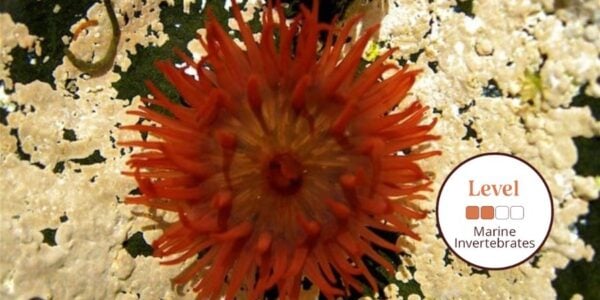
Wed 10, July 2024 - Wed 07, August 2024
The webinars will take place on Wednesdays 1:00 pm – 1:45 pm on the following dates:
- Week 1: 17th July 2024
- Week 2: 24th July 2024
No current dates for this course? Click here to view all the upcoming Natural History courses.
Progress Your Learning
This is a training course from the Field Studies Council, delivered by expert tutors with an approachable learning style. After attending this course, you may like to progress your learning with further relevant courses or branch out into other areas of natural history. The Field Studies Council offers both online and in person courses, so you can choose the learning style that suits you best.
The course gives you the opportunity to immerse yourself in a new subject and acquire novel skills. Our online portal gives you time to study at your own pace and fit the lessons around your own schedule.
If you have any questions about our online courses please check our Frequently Asked Questions
Please email [email protected] if you have any questions.
Group Bookings Made Easy
If you have a group of 10 or more individuals wanting to complete one of our courses, our team are available to discuss your options – from discounts to private team courses. Find out more!
You can rest assured that the absolute best content from an expert in environmental education will be at your fingertips. In choosing a Field Studies Council course, you will be joining thousands of people who learn with us each year.

